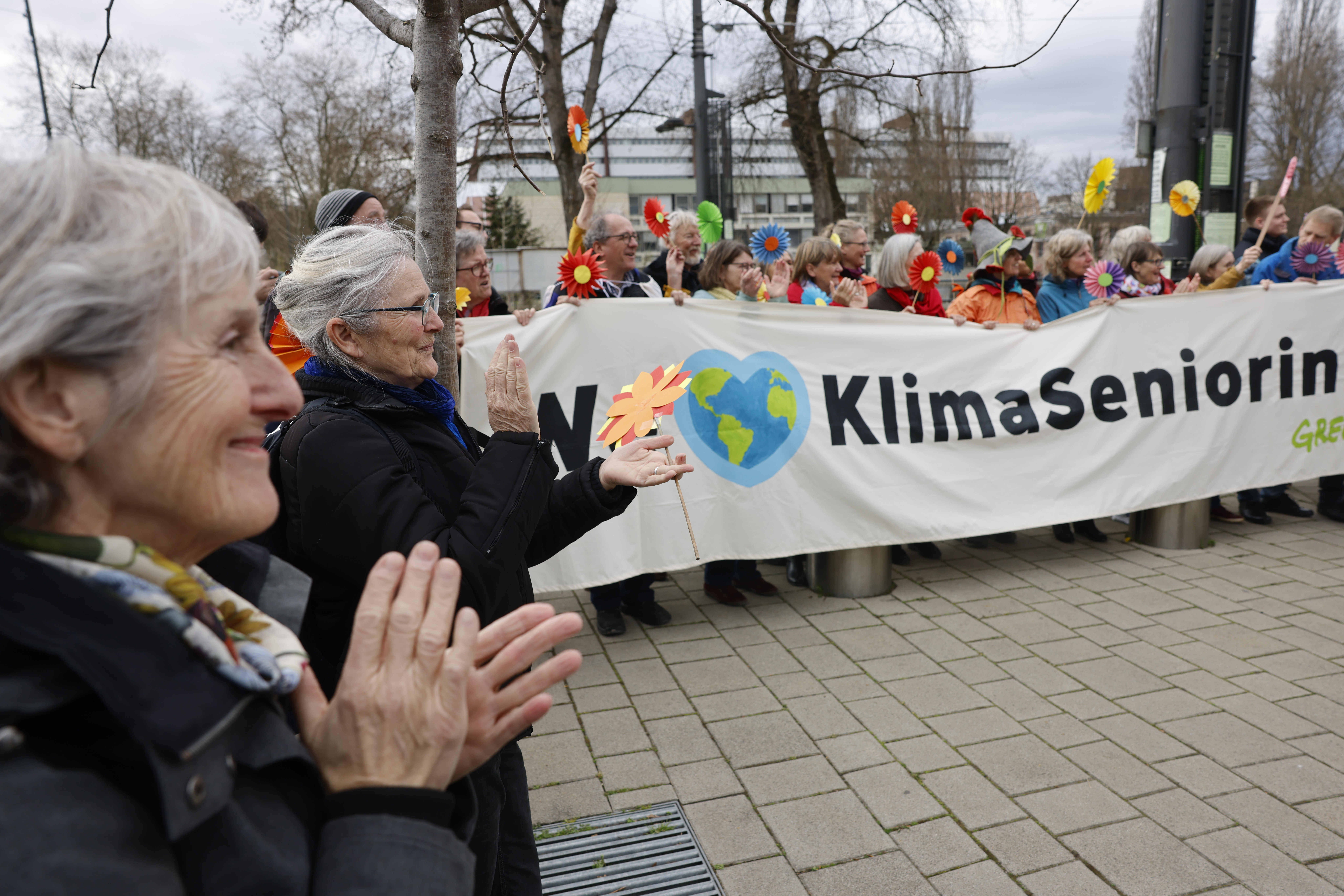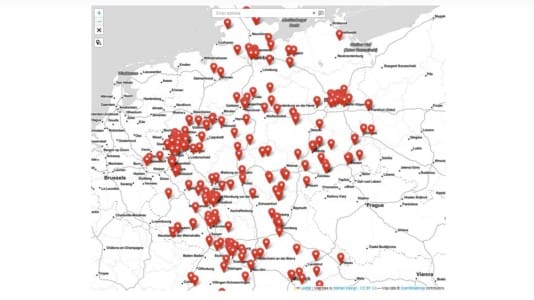The European Court of Human Rights has been asked to consider whether or not a government’s failure to act in response to climate change constitutes a breach of a citizen’s human rights in a landmark case brought before the court by an association of Swiss pensioners.
Members of the KlimaSeniorinnen group stood for photographs on Wednesday ahead of the first public hearing before the Grand Chamber in Strasbourg. The association, which has garnered the support of environmental campaign groups such as Greenpeace, has claimed that what they consider to be the Swiss government’s omission to act in reducing carbon emissions has violated their human rights.
They argue that elderly citizens are particularly vulnerable to the effects of climate change, citing the fact that excess deaths occur more regularly among the elderly during periods of extreme heat because they are less able to regulate their body temperature. The KlimaSeniorinnen group also claims that heat waves impact the mental well-being of elderly citizens more because they are less able to go outside and withstand the heat, which they argue affects their quality of life.
The association is relying predominantly on Article 2 of the European Convention on Human Rights, which protects the general right to life, and Article 8, which guarantees the right to private and family life. Domestic governments are obliged to take “reasonable and appropriate measures” to secure these rights, steps members of the KlimaSeniorinnen group claim the Swiss government is not currently taking.
It is the first case of its kind to be heard by Europe’s top human rights court; however, two similar cases are also awaiting to be heard from applicants in France and Portugal, both of which rely on the same articles of the convention.
One is being brought by French MEP Damien Carême, who claims that the French government’s inadequate response to rising sea levels impacts his private and family life due to the location of his coastal home, while another has been brought by a group of Portuguese youths who claim their quality of life has been impacted by frequent forest fires occurring in Portugal in recent years.
All three cases have been referred to the Grand Chamber, which means a total panel of 17 judges will hear the case, instead of the usual chamber of seven judges. The panel will include both the president and vice presidents of the Strasbourg court, in addition to a judge from the country of which the claim has been brought.
[pp id=70979]
“The ECHR has dealt with environmental emissions — noise or air pollution — before, but never with a country’s CO₂ emissions,” Birgit Peters, an international law expert from the University of Trier, told German news outlet Der Spiegel.
“There are indications that the court will take the complaint from the climate seniors as an opportunity to work out uniform principles for all three similar cases,” added Johannes Reich, an environmental lawyer from the University of Zurich.
A potential ruling by the court in favor of the applicants could have widespread implications for national governments across Europe, compelling them to implement climate policies that far exceed their current objectives.
The question to be asked is how well such a ruling would be perceived by the wider European population. This week in Berlin, a referendum initiated by eco-activists in favor of bringing forward the city’s net zero target by 15 years to 2030 failed to attract sufficient support to become legally binding, while earlier this month the Dutch populist agricultural party, the Farmer-Citizen Movement, stormed to victory in regional elections campaigning on a ticket to bin controversial agricultural reform to drastically reduce nitrogen emissions in the Netherlands.
Such a ruling could see a number of political parties face off with Europe’s top human rights court over how best to assume their climate responsibility in a sustainable, economically viable way.






